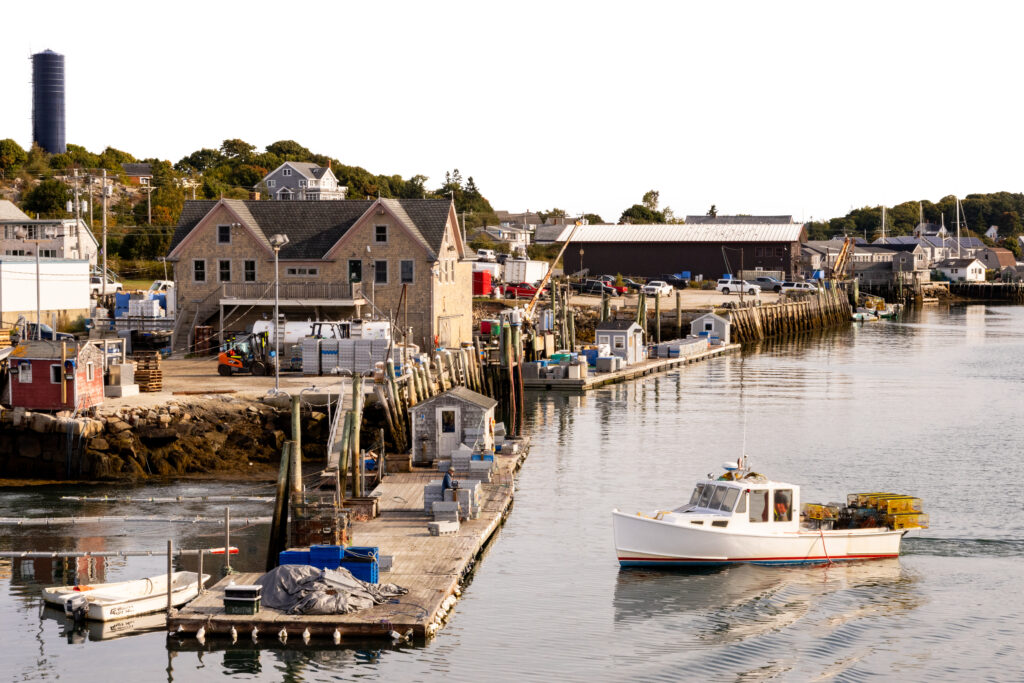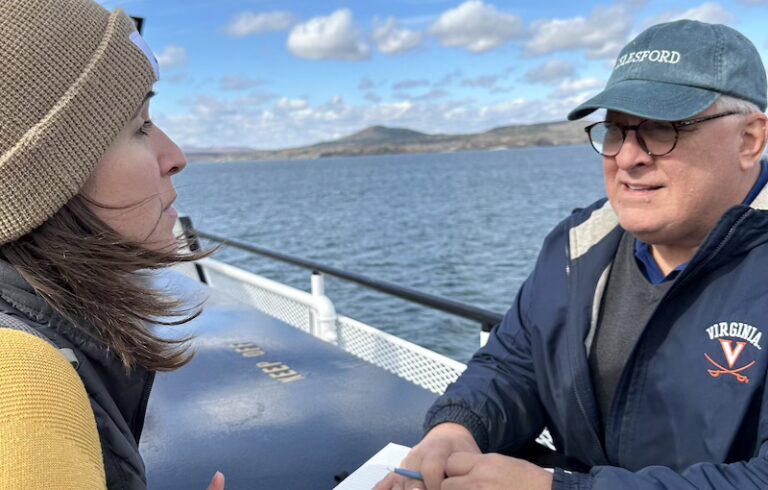We’re introducing a new, regular column dedicated to exploring and explaining the nuances of public policy at the federal, state, and local levels as it impacts Maine’s marine economy, climate resilience, and community vitality.
For the last 20 years, Island Institute has worked on public policy dedicated to protecting Maine’s working waterfronts. In that time, attention by policy makers has ebbed and flowed—and the last year represents the highest watermark yet in terms of substantively advancing this policy area.
Since the fall of 2023, we have made a concerted effort to drive public policy towards addressing the needs of Maine’s working waterfront businesses by expanding the understanding amongst policy makers, working to include these issues in guiding documents for the state, and supporting funding for this sector.
A couple of years back, I remember talking to a colleague who is deeply involved in efforts to retain jobs and grow the economy, about how important working waterfront infrastructure is to the economy of coastal communities. There was an incredulous look when I started talking about how these facilities have ten to 15 jobs and were absolutely integral to the success of 30, 40, or even 100 small businesses.
Those of us who work in coastal communities understand the vital role working waterfronts play in supporting jobs in our communities…
Those of us who work in coastal communities understand the vital role working waterfronts play in supporting jobs in our communities, yet this role has not been as clear in statewide discussions.
In the fall of 2023, while working on updating the “Maine Won’t Wait” climate action plan, we noted a key opportunity to influence the development of a policy document. As this process started, Island Institute convened the Working Waterfront Coalition, and together, we worked through the major issues facing working waterfronts and the potential policy interventions.
Going from the initial framework to the language that appears in specific strategies of Maine Won’t Wait took about nine months and more than 20 public meetings, which included those interested in working waterfront protection and state agency staff. As a co-lead of the group focused specifically on working waterfronts, I’m proud of the work this group did to come together around key issues.

Some of these ideas eventually became activities included in the state’s successful $69 million resilience grant. Many other policy interventions became part of the 2024 update to Maine Won’t Wait, and these focused on increasing the resilience of Maine’s heritage industries, including protecting critical infrastructure like working waterfronts.
They also informed the development of the working waterfront recommendation in the Infrastructure Rebuilding and Resilience Commission (IRRC) report released in May.
The damage the January 2024 storms did to coastal communities launched working waterfront-related policy from a relatively small, niche issue to a significant issue for policy makers. The storms also revealed that privately owned infrastructure requires new policy solutions. In response, the Legislature provided $25 million in the spring of 2024 to help rebuild those private working waterfronts.
These funds start to close a critical gap in public support for this sector.
The clearest articulation to date of the needs of working waterfronts comes from the IRRC report where one of the 11 strategies is focused on the need to protect and promote working waterfront resilience. In this strategy, the commission recommends:
• Identifying and mapping the most vulnerable working waterfront infrastructure
• Investing in resilience upgrades for public working waterfronts
• Strengthening the resilience of privately owned working waterfronts
• Creating new policy options, funding, and technical assistance to protect working waterfronts from conversion to non-working waterfront related uses.
State government is poised to support these goals.
Island Institute looks forward to continuing to partner with the state and members of the Working Waterfront Coalition to advance this important work.
Nick Battista is chief policy and external affairs officer for Island Institute, publisher of The Working Waterfront. He may be contacted at nbattista@islandinstitute.org.





